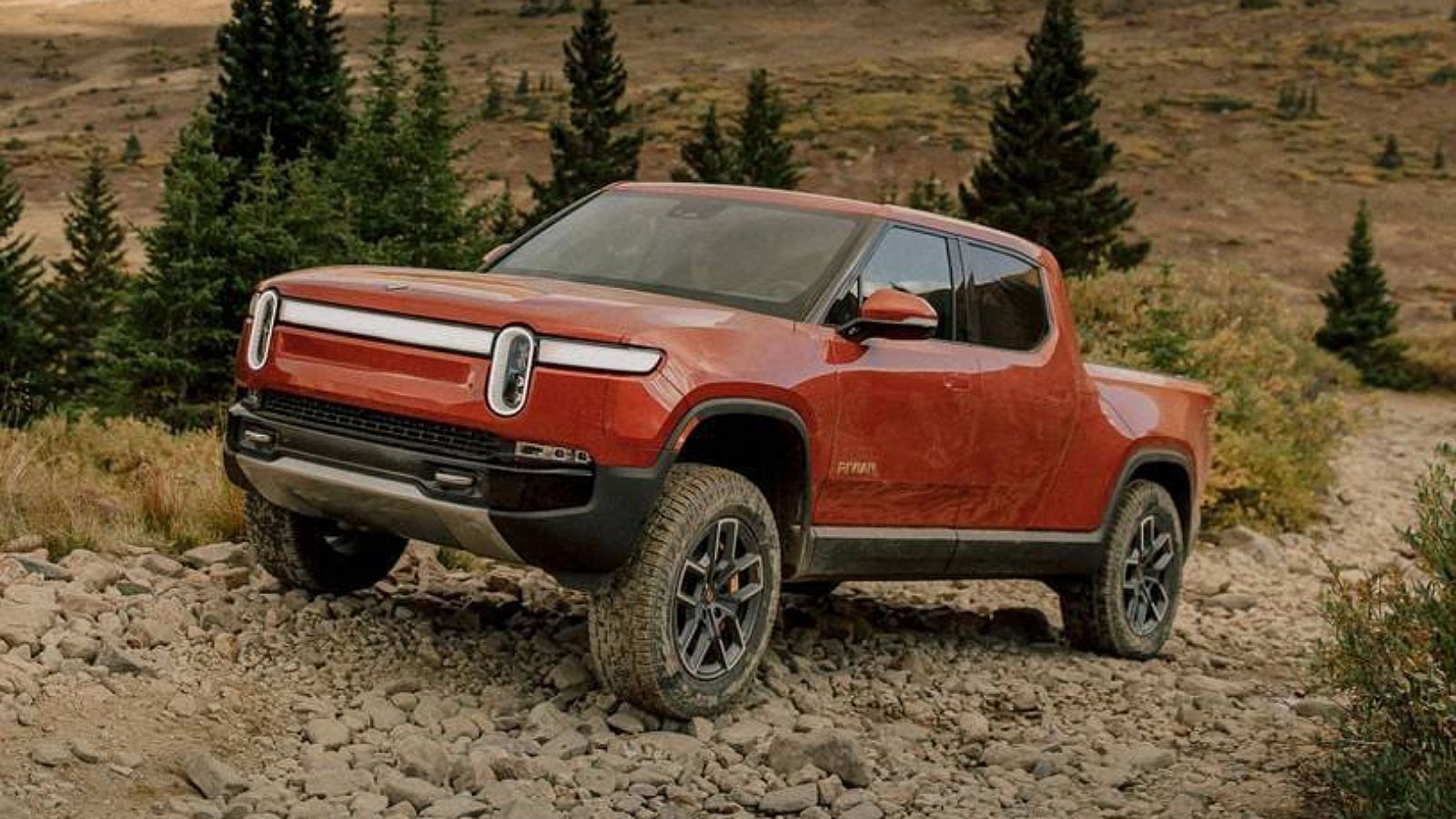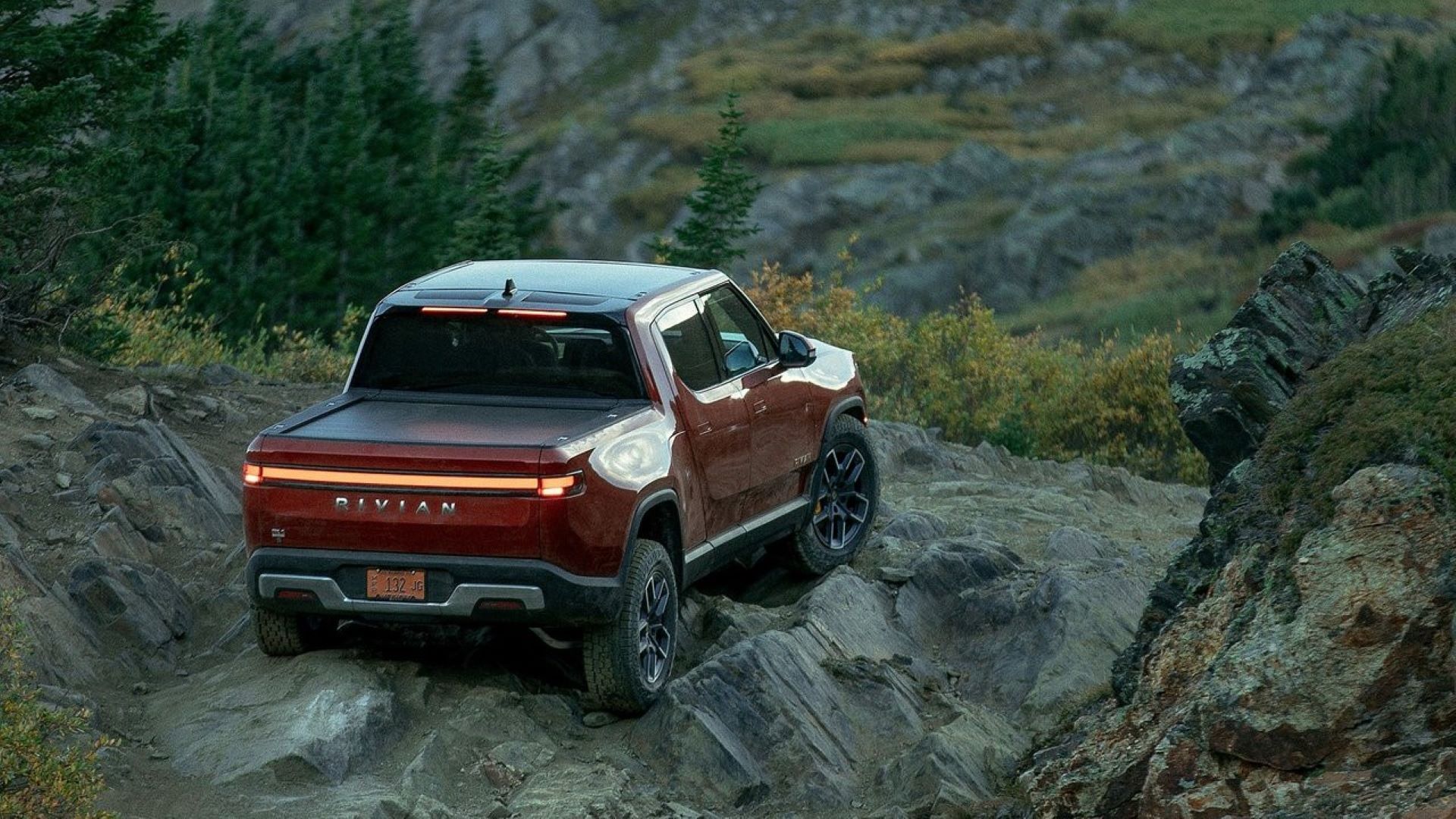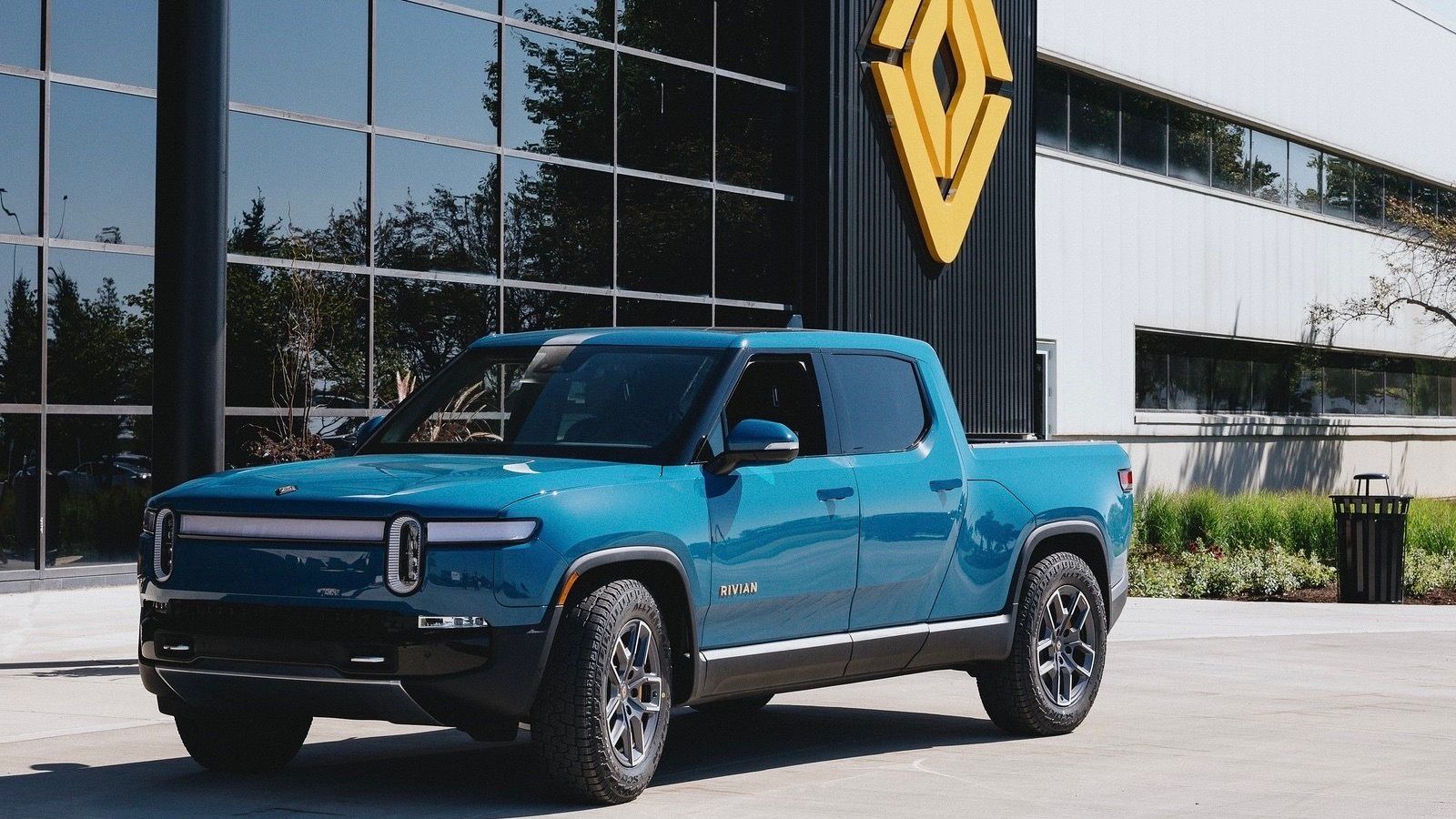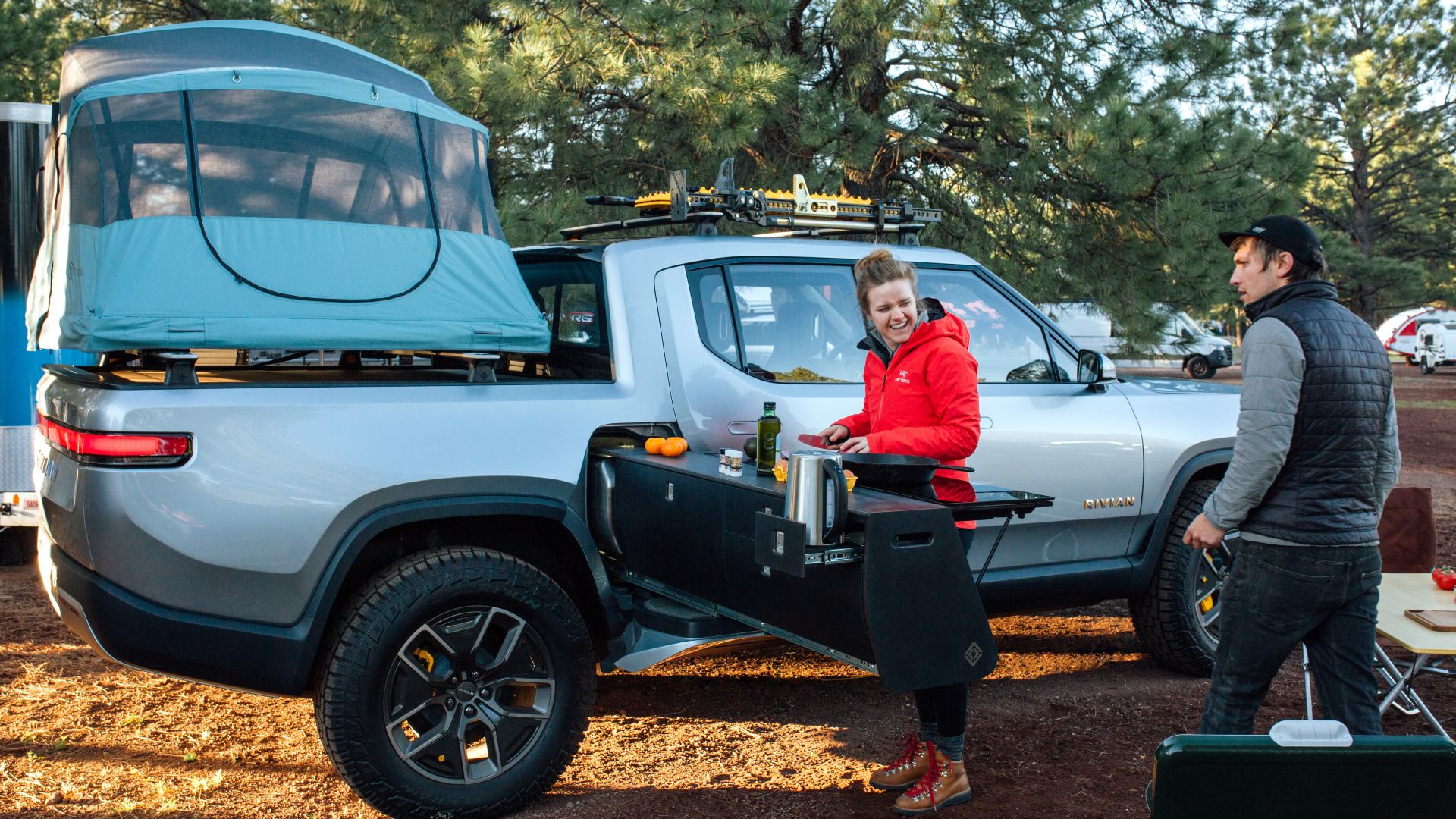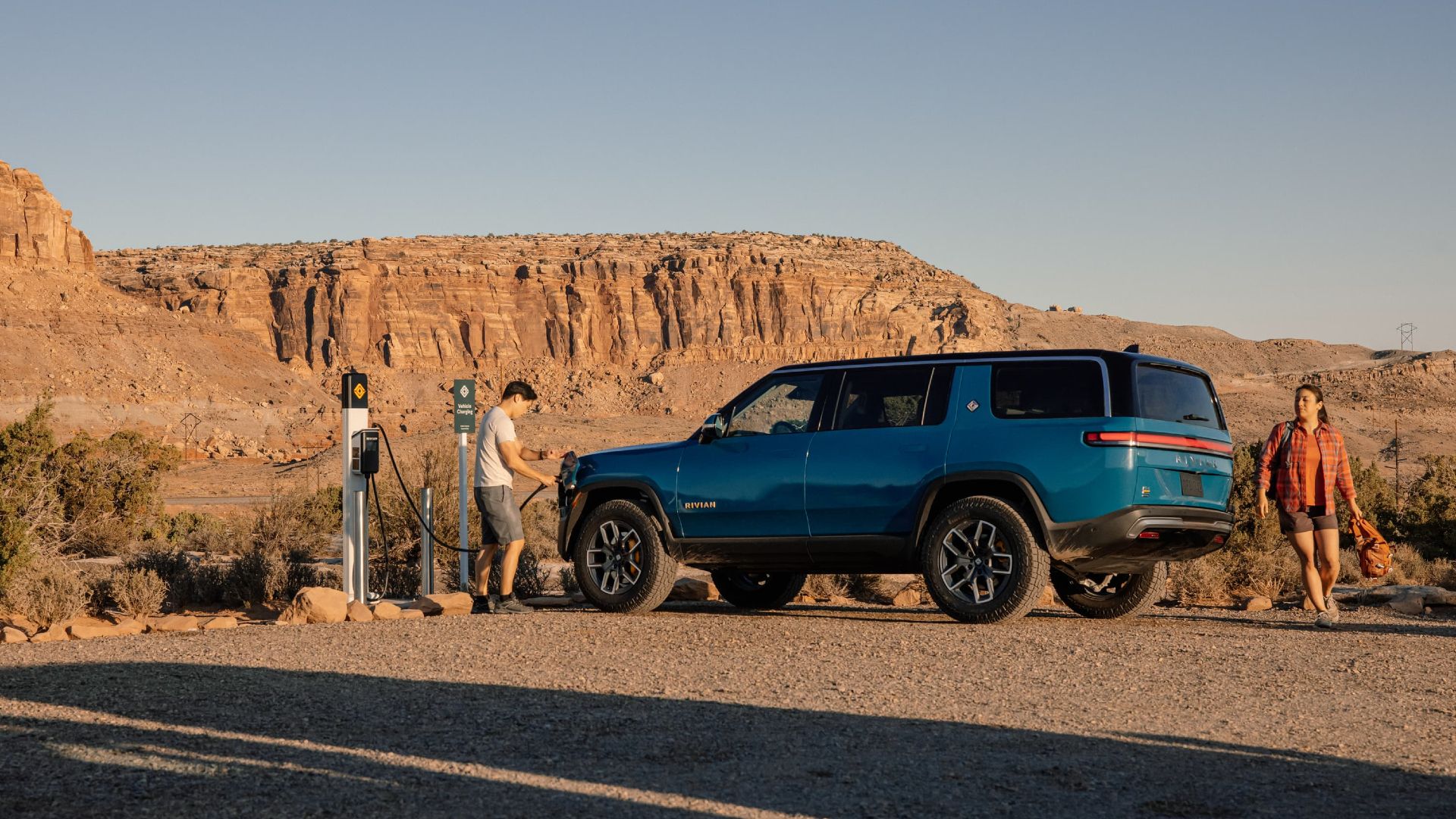Summary
- Rivian is a formidable player in the electric car market, with investments from Amazon and Ford and significant pre-orders for its adventure-focused models.
- Rivian's ownership structure, with strategic stakes from industry giants, gives it financial muscle, market access, and technological synergy.
- Rivian is an innovative technology company, with its proprietary "skateboard" platform and off-road capabilities setting it apart in the EV sphere. However, it faces challenges such as controversies, scaling production, international expansion, and competition from established automakers.
Rivian Automotive has emerged as an intriguing challenger in the North American electric car market, which is currently dominated by Tesla. The small EV start-up was founded by Massachusetts Institute of Technology (MIT) graduate R.J. Scaringe in 2009 with a mission to revolutionize sustainable transportation. The goal from the start was to focus on off-road and adventure vehicles like trucks and SUVs. This market focus is somewhat different from the broader industry standard, which has largely concentrated on passenger sedans, crossovers, and hatchbacks.
Rivian Q2 2023 Market Statistics
Unit Deliveries | 12,640 copies |
Units Produced | 13,992 copies |
Gross Profit Per Vehicle | $35,000 |
Rivian has captivated industry analysts and consumers alike with its innovative technology just a little over a decade since it began operations. This is partly thanks to significant financial backing and a robust market positioning. Rivian is not just another niche entrant in the automotive world. Investments from giants like Amazon and Ford and an increasing number of pre-orders for its flagship R1T pickup and R1S SUV models prove that it is in it for the long haul. It's a formidable player shaping the future of electric vehicles, with a concentrated but appealing plan to expand its range with more adventure-focused products. Rivian is considered to be an outlier in the automotive sphere, as it is one of the few brands that grew from being a small start-up to a fully functional manufacturer with segment-leading sales figures.
Facts, rumors, and other historical information regarding Rivian's past and future endeavors have been sourced from the manufacturer, MotorTrend, Car and Driver, Road and Track, and other respected publications and resources.
Humble Beginnings To Billion-Dollar Valuations
R.J. Scaringe claims to have found himself at a crossroads when he completed his PhD at MIT. His frustrations with the traditional automotive industry’s heavy carbon footprint went against his vision for a sustainable and eco-friendly future. He took a massive business leap and founded Avera Automotive in 2009. Initial years were challenging as the small company was subjected to tight cash flow, which resulted in several strategic pivots. Avera’s first project was a mid-engine hybrid hatchback, badged the R1, that benefited from developers who had previously worked on the Ford GT, Dodge Viper, and Koenigsegg CCX. The concept was sadly rapidly abandoned when the company altered its business into Rivian Automotive in 2011, which prompted a shift to focus exclusively on electric cars.
This transition appealed to many tycoons in the industry, who happily graced the modest start-up with huge capital investments through multiple rounds of funding. The company had already secured investments from Cox Automotive and Ford by 2019. Amazon joined the party with a $700 million investment shortly after. The company's valuation now sits at an amazing $100 billion, which moves it from a mere start-up to a unicorn company contesting for a significant market share in the electric car market.
Ownership Structure And Big Backers
Ownership can often determine the fate of a start-up. Lordstown and Faraday Future are two clear examples of how some EV dreamers may not cut it in the big leagues. Ownership structure has become one of its biggest strengths for Rivian. The company’s investment portfolio features strategic stakes from industry giants like Amazon and Ford. This is unlike many start-ups that are fueled solely by venture capital investments. Amazon's commitment isn't just a financial one, either, as it includes an order for 100,000 electric delivery vans by 2030. This is part of Amazon's Climate Pledge, which aims to make the company net zero carbon by 2040.
The behemoth in the automotive industry with over a century of history that is Ford adds another layer to Rivian’s success. The Blue Oval’s $500 million investment is a clear indicator of Rivian’s promise and capabilities. This partnership could be the bridge to an electric future for Ford, because it provides access to Rivian’s innovative technology and electric platforms. Ford’s extensive experience and market reach offer an invaluable advantage to Rivian. These partnerships give Rivian the financial muscle, market access, and technological synergy that most start-ups can only dream of.
Setting The Technological Innovation Bar High
Rivian is not just another electric vehicle manufacturer. It is also a technology company that is innovating almost every aspect of the modern car. Its proprietary “skateboard” platform is a game-changer in the EV sphere. The skateboard design integrates crucial components like the battery pack, drive units, and suspension into a single, flat structure. This design allows for more cabin space and opens it up to opportunities for a wide array of body styles and commercial applications.
Rivian R1T And R1S Dual-Motor Specifications
Power | 533 horsepower |
Torque | 610 pound-feet |
0-60 mph | 4.5 seconds |
Estimated Battery Range | Up to 410 miles |
Wheelbase | 121.1 inches |
Towing Capacity | 7,700 pounds |
The current R1T and R1S are prime examples of Rivian's technological prowess. These vehicles offer more than 300 miles of range on a single charge, can ford through three feet of water, and can go from 0 to 60 mph in just three seconds. Rivian is also testing Level 3 autonomous driving capabilities, with features like lane-keeping and adaptive cruise control already in place. What’s even more compelling is that Rivian has been able to pack these features into vehicles designed for off-road capabilities and adventure. This is something that very few electric vehicles offer. Rivian hopes to expand this range by adding more compact truck and SUV options that will use its new R3 platform.
Controversial Struggles
Rivian Automotive has struggled with a fair share of controversies, much like many other companies operating in high-stake and rapidly evolving industries. One of the most publicized concerns is allegations of intellectual property theft. Tesla filed a lawsuit against Rivian in 2020, which claimed that the latter had poached Tesla employees and encouraged them to bring confidential and proprietary information. Rivian acknowledged the hiring of former Tesla workers, but it strongly denied allegations of IP theft and described Tesla's claims to be an attempt to derail it as a growing competitor.
Pricing adjustments have also generated controversy. Rivian raised the price of its R1T pickup and R1S SUVs just days before the first scheduled deliveries. This predictably caused uproar among customers with existing pre-orders. The sudden increase was viewed as a breach of trust by some early adopters, prompting Rivian to backtrack and honor the original prices for those who had pre-ordered. This episode was a learning curve for the company that is still navigating the intricacies of customer relations.
Rivian's direct-to-customer sales model has sparked disputes with auto dealers and legislators in various states. This strategy bypasses traditional dealerships, which has led to legal challenges and lobbying efforts to restrict or ban this sales method in some jurisdictions. The resistance emanates from concerns that this model could disrupt the automotive retail industry and harm local businesses, potentially affecting consumer rights. These controversies serve as a reminder that Rivian may be paving the way in electric vehicle innovation, but the road ahead is scattered with challenges that extend beyond technology and production. How the company navigates these issues will be critical in shaping its reputation and long-term success.
An Electric Revolution Or Just Hype?
Questions abound about Rivian’s ability to deliver on lofty promises as it approaches critical years of growth and expansion are being asked. There's the task of scaling production to meet increasing demand. The company currently has a manufacturing facility in Normal, Illinois, but the need for additional manufacturing capabilities increases as orders ramp up.
Another pressing issue is international expansion. The American market is a significant market to conquer, but the real game-changer could be tapping into markets like Europe and China. These regions aggressively promote electric vehicle adoption and offer substantial tax rebates and incentives. The more established competition also serves as a noteworthy challenge for Rivian. Traditional automakers like General Motors and Tesla are advancing their electric truck and SUV offerings. There's also the question of how Rivian will navigate the complexities of evolving regulations, battery supply chain constraints, and consumer expectations.
Rivian’s head-start in the niche yet expanding market segment is a crucial factor to consider when analyzing its future success. It benefits from strong strategic partnerships and a technology-first approach. These factors make it one of the most closely watched companies in the automotive sector. It’s quite clear that the stage is set for Rivian, when considering current consumer excitement and a massive order book, particularly from Amazon. Whether it becomes a transformative force in the automotive industry or fades into the background will depend on how well it navigates the challenges ahead. Regardless, Rivian has the attention of the world, and what it does next could very well redefine the automotive landscape.

